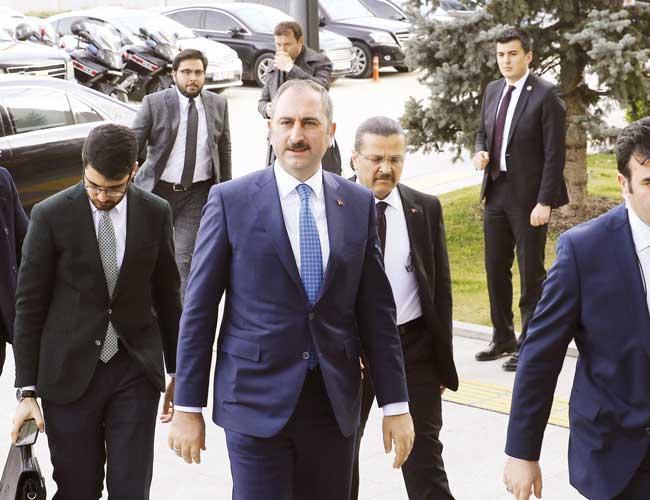
A commission of six ministries held its first meeting on Feb. 22 as part of a three-day workshop aimed at discussing increased measures against child molesters.
The meeting comes after an intense recent debate in Turkey on introducing chemical castration for those found guilty of abuse of minors, following a series of cases reported in the media.
Chemical castration, a practice currently excluded in Turkish law, would be implemented only after the judicial process is completely finalized, Deputy Prime Minister Bekir Bozdağ told state-run Anadolu Agency.
“First the trial will take place. The punishment will only be given when the crime has been absolutely determined. The execution of the verdict will take place after the court has made a final decision [including after any appeals process],” Bozdağ said.
“The commission will prepare suggestions for preventive and protective measures and we will move forward from there,” he added, noting that legislative or administrative regulations could be made afterwards.
The debate has emerged after news of the rape of a four-and-a-half-year-old girl in the southern province of Adana on Feb. 10 made headlines across Turkey.
Amid national outrage over the case, President Recep Tayyip Erdoğan said on Feb. 20 that the “harshest penalties” would be applied in such cases going forward.
Speaking at the ruling Justice and Development Party’s (AKP) parliamentary group meeting in Ankara, Erdoğan said raising awareness about child abuse was discussed at length during the Feb. 19 cabinet meeting.
“Deterrence will be achieved by adopting the harshest penalties. There can be no delay in the tackling of these issues. Those who commit these crimes must be excluded from the possibility of reduced sentences. Wounds inflicted in society are the same as killing a person. The penalties given to such crimes should be in line with our feelings. We’ll resolve this issue at the soonest possible date,” he added.
Following his remarks, a three-day ministerial workshop led by Deputy Prime Minister Recep Akdağ kicked off on Feb. 22.
Family and Social Policies Minister Fatma Betül Sayan Kaya told Anadolu Agency on Feb. 22 that chemical castration was aimed at “temporarily suppressing” the sexual drive, not permanently affecting it.
“We wish to enact the measure of reducing and suppressing sexual drive with chemicals during the punishment execution period, after a court decision, within a few days,” Justice Minister Abdulhamit Gül said.
“We live in the same world as these people, we breathe the same air. Thinking of this, I worry for my own children,” Gül, a father of three children, told daily Hürriyet, referring to the recent criminal case in Adana.
However, Turkish Medical Association head Raşit Tükel called on the authorities not to present “medial practices as a penalty.”
Ahmet Gökçen, a professor of law focusing on criminal procedure at Marmara University’s Law School, suggested that chemical castration could be used for conditional releases.
“[A convict sentenced over sexual abuse] could be released on the condition that he or she is willing to undergo a medical procedure,” Gökçen said.
Main opposition Republican People’s Party (CHP) leader Kemal Kılıçdaroğlu has reportedly instructed his party deputies to contribute to legal works undertaken by the government on the issue.
CHP deputy Gülay Yedekçi submitted a proposal to parliament calling for an official investigation into the issue of sexual abuse. The proposal stated that only five percent of rape cases actually emerge to light, while the other 95 percent remain “hidden.”
“The cases of child abuse in our country have increased by 700 percent. They now exceed 300,000 per year,” Yedekçi said.
Chemical castration, a procedure that involves using anaphrodisiac drugs to reduce sexual drive and performance, does not prevent a person from experiencing sexual urges forever. The drug is administered either by mouth or injection, with a frequency of between once a month and once every three months.
Indonesia, South Korea, Australia, and the United States are among the countries that use chemical castration as a punitive measure for sexual offences and pedophilia.